Introduction
Welcome to issue two of the Seaford Review, a new magazine for poetry. This issue — our first spring issue — contains poems from ten poets, with themes ranging from a celebration of sexual desire in Teddy Webb’s On Snogging and Hetty Cliss’ What If I Told You That, through to poems which take us to places of grief and consideration, such as Giles Goodland’s beautiful poem Rain, or Stephen K. Kim’s moving Elegy for Joe. As when putting together issue one, we were surprised and delighted by the strength and variety of work we received, and there was much back-and-forth over which poems should make it into the final issue. We hope that you enjoy reading the finished product as much as we did making it.
As poets ourselves, we know it’s not easy to have one’s work read and appraised by others; neither is it lost on us that Seaford Review is still very much the “new kid on the block”. We were thus moved and honoured that so many poets of all kinds of backgrounds felt able to trust us with their work. We are still learning how to be editors and manage the running of a literary magazine, and are grateful for the patience you afford us. So, to everybody who submitted this time round: thank you. Your work is quite literally what makes the Seaford Review what it is.
— Chris, Luís, Jack
Table of contents
Joshua Jones
Being Beautiful Is Not Enough
Caitlin Allmond Sherret
Queer, as in Odd
Giles Goodland
Rain
Stephen K. Kim
Elegy for Joe
Kendra Whitfield
What I Learned From My Mother
Nathan Evans
Pleasure Gardening
June Archbold
Saint Audrey
Teddy Webb
On Snogging
Sitron Panopoulos
The Old East: The Kneeling
Hetty Cliss
What If I Told You That
Joshua Jones
Joshua Jones (he/him) is a queer, neurodivergent writer & artist from Llanelli, south Wales. Local Fires, his debut short story collection, was shortlisted for the Dylan Thomas Prize & Polari First Book Prize. He has published various pamphlets of poetry, including A Fistful of Flowers in collaboration with Caitlin Flood-Molyneux (2022), Three Months in the Zebra Room (Hello America Stereo Cassette, 2024), and The City on Film (Bread and Roses, 2024).
Being Beautiful Is Not Enough
Never the soft flesh of the lychee fruit, always the toxic pit.
Fizzy pop smoothed flat in a summer evening, sweat
is not desired beauty tactic. Breathing in the smog of a life is
not a desired beauty tactic. I have been known to be attacked
by the knowledge of myself.
I am not my swimming shorts, but rather a tick
feeding on my own thigh, expiring
under a palm slap. I would not recommend the taste of my own blood.
Five am showers drown out birdsong. Has anyone considered
the speed of light is simply too fast. I won’t sing, I can’t even talk. Sorry.
Conversation is communion
And communion is guilt. Everyone knows that
Or so they say. Who’s they?
I don’t know. We haven’t spoken in a long time.Caitlin Allmond Sherret
Caitlin Allmond Sherret is a makar and performer from the Highlands of Scotland. She has been named as a Traverse Theatre Young Writer and one of the Scottish Poetry Library’s Next Generation Makars. Her work has been published by Heroica, Snack Magazine and FOMA Press. Find her on Instagram @kitkatpoetry_
Queer, as in Odd
Queer as in odd. Queer as in strange. As in, misplaced, out of place, out of body. As in, saying unnatural when you actually mean a little too natural, a little too close to nature, a little too far from this world of plastic and plaster that we’ve sealed ourselves into. Queer as in evening. As in twilight. As in the 2008 film Twilight, the awkward press tour where Kristin Stewart squirms under flood lights and sinks into a chrysalis for protection. As in the concept of a chrysalis, when the caterpillar or butterfly or both are so deep in change that it’s just a bag of soup and brains. As in bogs and swamps and woods and moors, and those who live on the edge of them. Queer as in that aunt your mum mentions sometimes with a mixture of exasperation and awe, who lived all her life with her sister except for one summer in the south of France, who shut her front door one day and walked out and never came back, spoon still in the sugar pot, oats still in the cupboard. Queer as in how there are always cowboys or nuns or deckhands or ladies’ maids, how there’s always a reason for two guards to stay up all night watching the horizon. As in all the good married ladies who remember their best girl friend and the way her hair fell just so when she laughed. As in the Romans and their many excuses to sit naked in each other’s company. Queer as in Orlando. As in Mrs Dalloway. As in the way I looked at myself in the mirror that first day I realised. As in the feeling you get when you read back over what you’ve written and spot the links you couldn’t see before popping up like mushrooms in a perfect circle.
Giles Goodland
Giles Goodland's books include Of Discourse (Grand Iota 2023). A Spy in the House of Years (Leviathan, 2001) Capital (Salt, 2006), Dumb Messengers (Salt, 2012) and The Masses (Shearsman, 2018). Civil Twilight was published by Parlor Press in 2022. He has worked as a lexicographer, editor, and bookseller, and teaches evening classes on poetry for Oxford University's department of continuing education, and lives in West London.
Rain
Rain is water defined by collapse: step over the sheets, they assert the moment it brilliantly fell. In this way absolute accords with air. It arrives facelessly with a firm handshake, but when touched, slides over your skin. It hunts the rung-true air, hoofbeats flowers in road-dust, crosses cities as a bunch of keys searching for a lock. The same loop of evening plays at the point the news changes from past to future, and each family for a moment considers the temporary obliteration of the map. You’ll hear its speech from the storm drain, printed out later as leaves.
Stephen K. Kim
Stephen K. Kim (he/him) is a queer Korean American writer and college educator in upstate New York. He enjoys spending time with his husband and his cat. His poems appear or are forthcoming in Ghost City Review, Fifth Wheel Press, and elsewhere. He can be found online @skimperil.
Elegy for Joe
After Jack Gilbert
Only I sit at the Tenth Avenue café we’d do breakfast the morning after, stuttering when the waitress asks if you’re on your way. Nobody but you remembers languid bike rides along the Willamette, how we’d stop and sprawl on the riverbank to appraise the joggers as they zipped by in skintight spandex. It was you, cowboy hat askew, beckoning me with swinging hips to the dance floor as Whitney Houston blasted around us at a Hongdae bar. You standing naked at the mirror, me changing the sheets as we discussed if we’d invite that night’s third to bed again. No longer will you grin coyly, leaning against the wall of a grungy Hell’s Kitchen club, and whisper into my ear how I should approach the clean-cut bartender because he wasn’t your type though he shared a haircut and build with your last ex. It’s half past three. I down my last dregs of cold coffee and leave. Fathoming how love is not love without the contingency of grief.
Kendra Whitfield
Kendra Whitfield lives and writes on the southern edge of the northern boreal forest. When not writing, she can be found basking in sunbeams on the back deck or swimming laps at the local pool. Her poetry has been published by Beyond the Veil Press and Community Building Art Works.
What I Learned From My Mother
I remember the semi-trailer swallowing the hood of my mother’s red Cutlass Supreme. Everything moving in slow motion as the bed slid closer and closer to the windshield. My feet moved like molasses cakes, trying to scramble back, backward, over, away, but the seatbelt held me tight. It was Christmastime and we were delivering a turkey to our cousins. It thawed in the backseat for hours while police investigated the scene. The truck dragged us 50 metres and only the size of mom’s land yacht saved us. We gridlocked traffic for four hours the Saturday before Christmas and it was the first time I saw my mother cry on cue. “Men can’t stand it when women cry,” she told me and winked. I was 10 years old. The next time I saw her do that was when the police came to the door the night my father died.
Nathan Evans
Nathan Evans’ poetry has been published by Muswell Press, Royal Society of Literature, Manchester Metropolitan University, Fourteen Poems and Broken Sleep. His first collection, Threads, was long-listed for the Polari First Book Prize; his second collection CNUT is published by Inkandescent; he hosts BOLD Queer Poetry Soirée.
Pleasure Gardening
for the RVT
1662 The gratification of gossamer desire
was centuries-manured into her
Vauxhall plot: bridge & boat crowd
had flocked to find senses titillated
by restauranteurs, rope walkers
in revealing leg-wear transporting
them to stars & rent boys in rustling
arbours returning them to gutters.
1862 She scrunched her skirts & squatted
in a corner of what had once been
playground of kings (& queens);
there she remained—hem blackened
by road junction, brickwork ribbed
like crinoline & colour of piss stains
—a tavern royal only in name.
1962 The queens returned with servicemen
from frontlines. She welcomed them
—maintaining a merkin of legality
with hymen between stout-sipping
pensioners & female impersonators
synching & strutting a kidney-curve bar.
1987 Optics sightlined & stage centre-set
for Savage put-downs, she fought
bigot-gloved bobbies as she fought
all viruses—capitalism especially—
at each proud tit an underpuppy;
she became Boudicca-upon-Thames.
2012 Well, what do we think she was doing,
squatting in South London slum land?
Shit is a nutrient; water-closet rude bits,
wash out wildness & weird insects,
you get Gail’s growing in straight lines;
this a good gardener overstands.
2024 Even warrior queens can fall, in the end;
that Capital is a cunning one—milking
the old girl for all she’s got under cover
of having her strapped to supporting
machines—when all she needs, really
is a sneaky ciggie, a swig of gin & to feel
that filthy laugh rattling her doors again.June Archbold
June Archbold (she/her) is a poet, writer and filmmaker from Suffolk, living in London. Her work explores queer alienation, industrial decay, the fear of nature, and acute self-flagellation.
Saint Audrey
When drunk on visions, you professed to me
that “it was only right” your neck should bulge,
for all the necklaces and vanities
of which you, in your reckless prime, indulged.
I’d never know, ascetic now you are.
Remind this lapsing nun your ancient ways.
The matins rushing past your Vespa’s bars —
our vinted dawn. From ash comes sudden shade.
Your lauded miracles held not a glim
to all our secret toasts. The waters’ rise
in your absconce just proves my sext can’t swim —
it’s said you only meet somebody twice.
Unlike you, death’s terse for me — or will be.
I can’t get old; my sisters... they would kill me.Teddy Webb
Teddy Webb is a poet and essayist based in Brighton, UK. Her work, which explores themes of lesbian history and reclaiming our connection to nature under capitalism, has recently been published in Teiresian, Opal Age, and Butch-Femme Press. She has been shortlisted for the Bridport Poetry Prize.
On Snogging
The kids had it right: feverish under bleachers, sweating out straight decades of repression in poorly fitted sports bras and dollar store boxers - when we poured our lips into those sickly teenage kisses we were the wisest we have ever been. Remember how sex felt like the fog between our fingertips, how we stared out at it, shy of its shiver yet heatsick with waiting, aching for it to kiss our sunburnt necks. I think you were misted, then, smoke-drunk, wasting away evenings with the first girl to promise her hands to your ribs but who these days is making out like that? Like the nine to five is a distant vision, like the concert’s just ended and we are all frizzed-up hair and tinnitus - who is loving by cellphone torchlight with that high school timelessness? It could be us, my impatience and your lazy river drawl. Come, Our kitchen is ready for hunger. Let us knead our floured lips together against the linoleum until we exhaust ourselves out of fucking, leaving crescent moon echoes in your cinnamon-dusted shoulderblades.
Sitron Panopoulos
Sitron Panopoulos is a Greek poet and artist living in London. Prior to writing poetry, he developed a play for the Arcola Theatre Lab and released music under the moniker Sitron F. His work has appeared in anthologies by Toothgrinder Press and Carnival Press. He is currently a student on the MA at the Poetry School.
THE OLD EAST : THE KNEELING
1. It’s one minute past midnight the sky folds its shirt over a balcony. Three flights of trees and underneath a tramline. You thought you’d be a good friend for once to the sad girls of the balcony to the tealights and the rye to the stem broccoli. 2. Now you are on a tram passing West past a tower called Alex goodbye Alex we got the trees and the heartlands the young men guarding the heartlands. 3. Slab a new sky. Meatier now not skinnier. A basement bar a streetlamp counting the cars on the highway. Here is a slot for a new heart here is a chest a pair of lungs here is the hinge that locks the cubicle. Here are six men waiting for your mouth. 4. And the light stands frameless over the door touching your jeans now on the floor. Each man that enters here is a balcony looking East. A country that’s lost its name. A family tree chopped to the ground where your knees get dirty.
Hetty Cliss
Hetty Cliss is a poet from the Cambridgeshire Fens and a graduate of UEA's Creative Writing MA. Her poems can be found in fourteen poems, Propel Magazine, Bi+Lines, and elsewhere. She was awarded the Ware Sonnet Prize 2024. Her debut poetry pamphlet (In)Habit is available to pre-order now and will be published by fourteen poems on 31 March.
What If I Told You That
The sluttiest thing a man can do is have a clean bathroom. Tonight, I want to get so loved up I can’t see straight, you forget my name. The word atrium is Latin for entrance hall. Holding eyes with beanied strangers gets me going. I’ve rotted at restaurants, corpsed under streetlights. I’ve cycled to cinemas in loose skirts. What is want but three half pints sunk. I rabbit to their level. Right now, I’m greying up the duvet. Cutlery sleeps unrinsed in the sink. Smears on the window coat the whole moon, the sun. Maybe I want to be taken care of. Maybe I’m not an initiator of any kind. Venus is the hottest planet in our solar system. Its heatwave never ends.

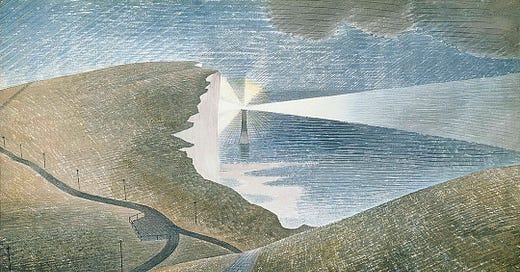



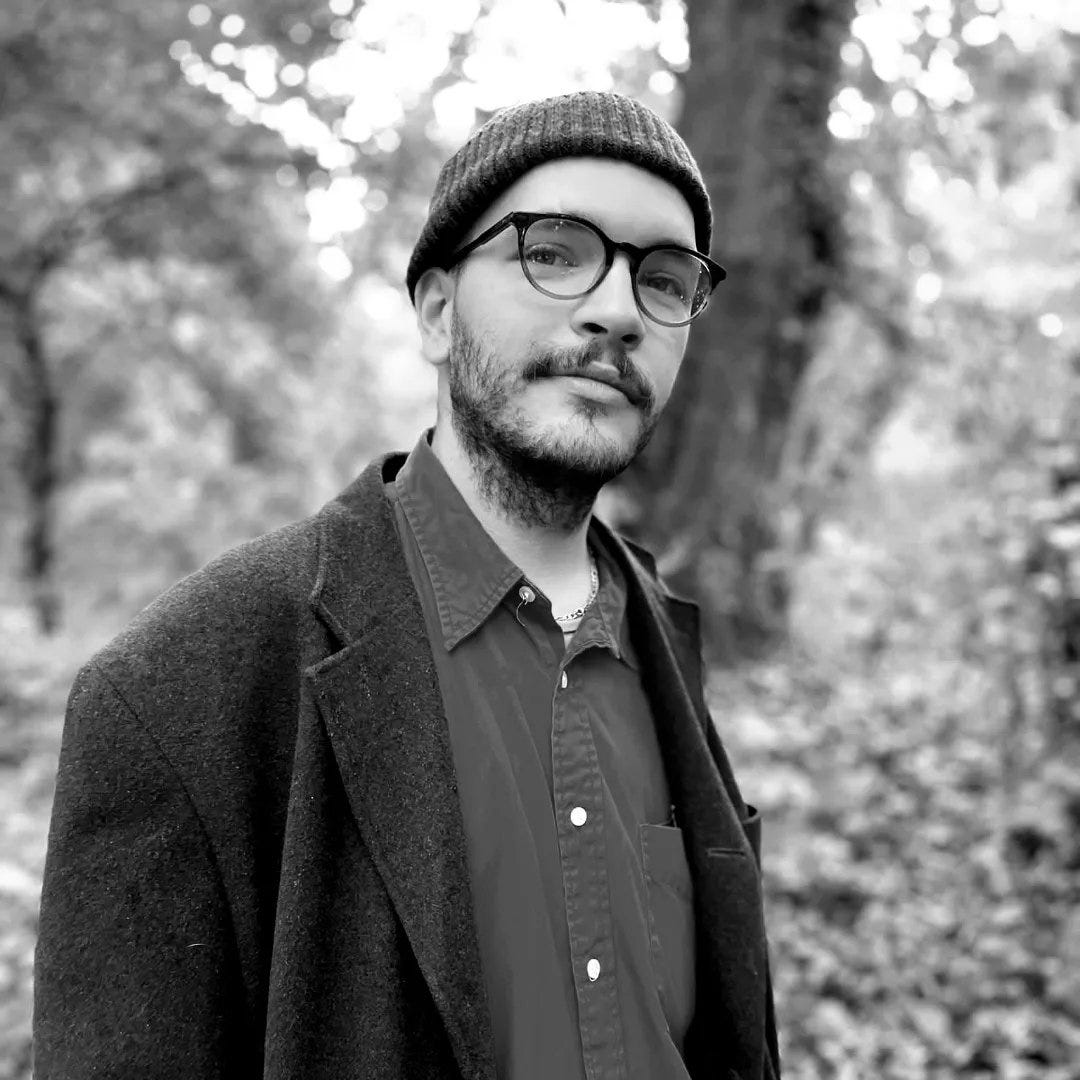
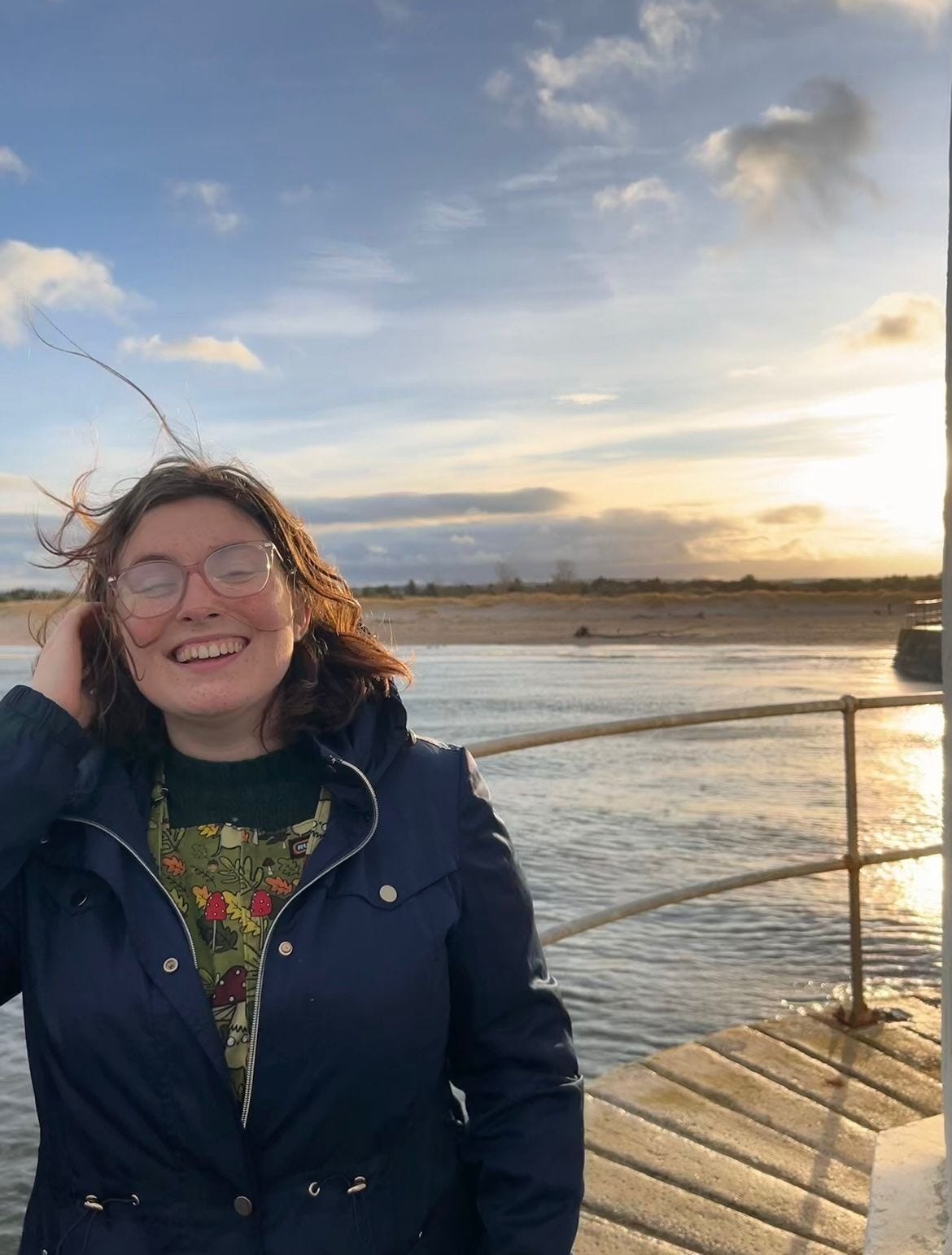
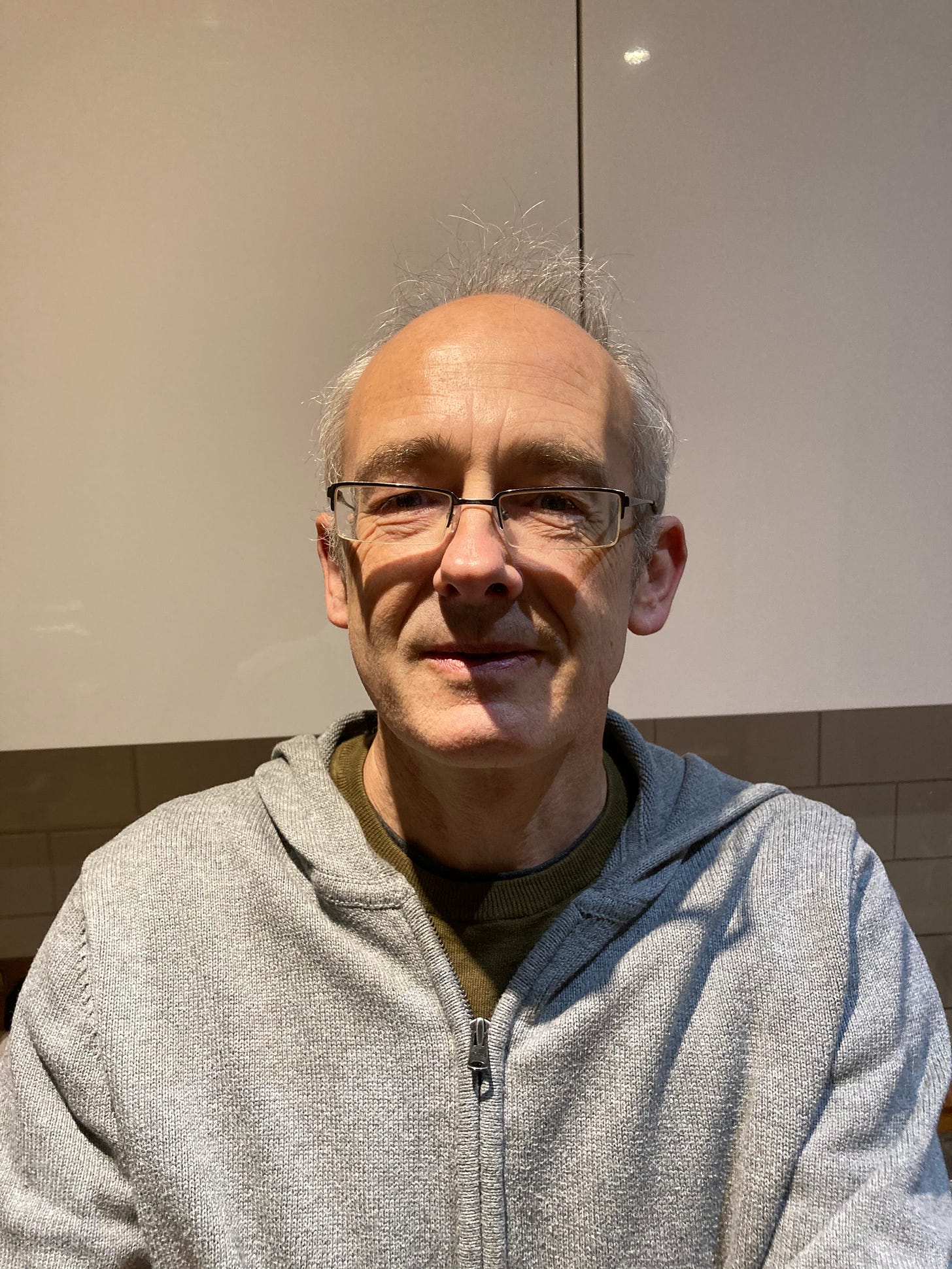
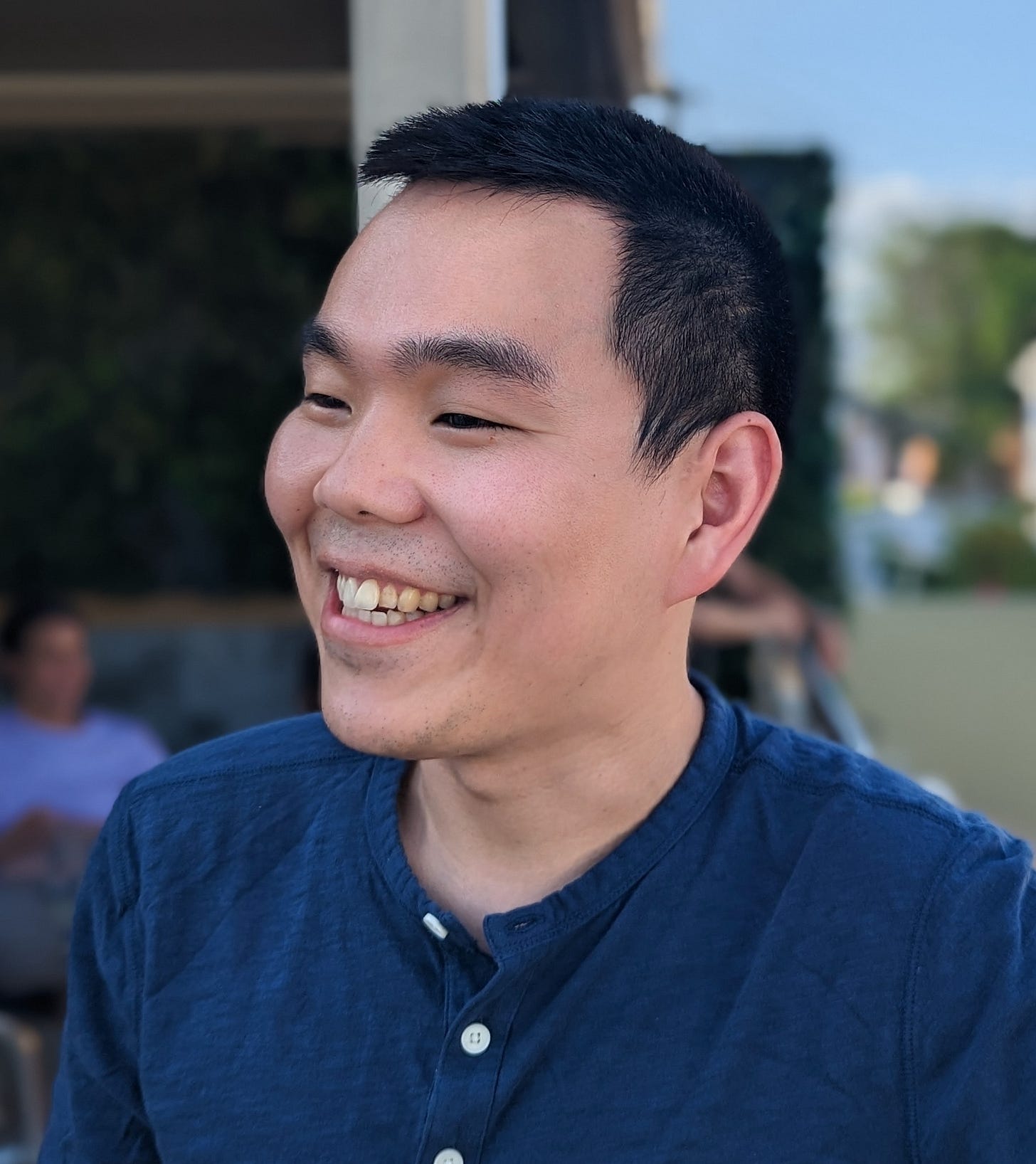
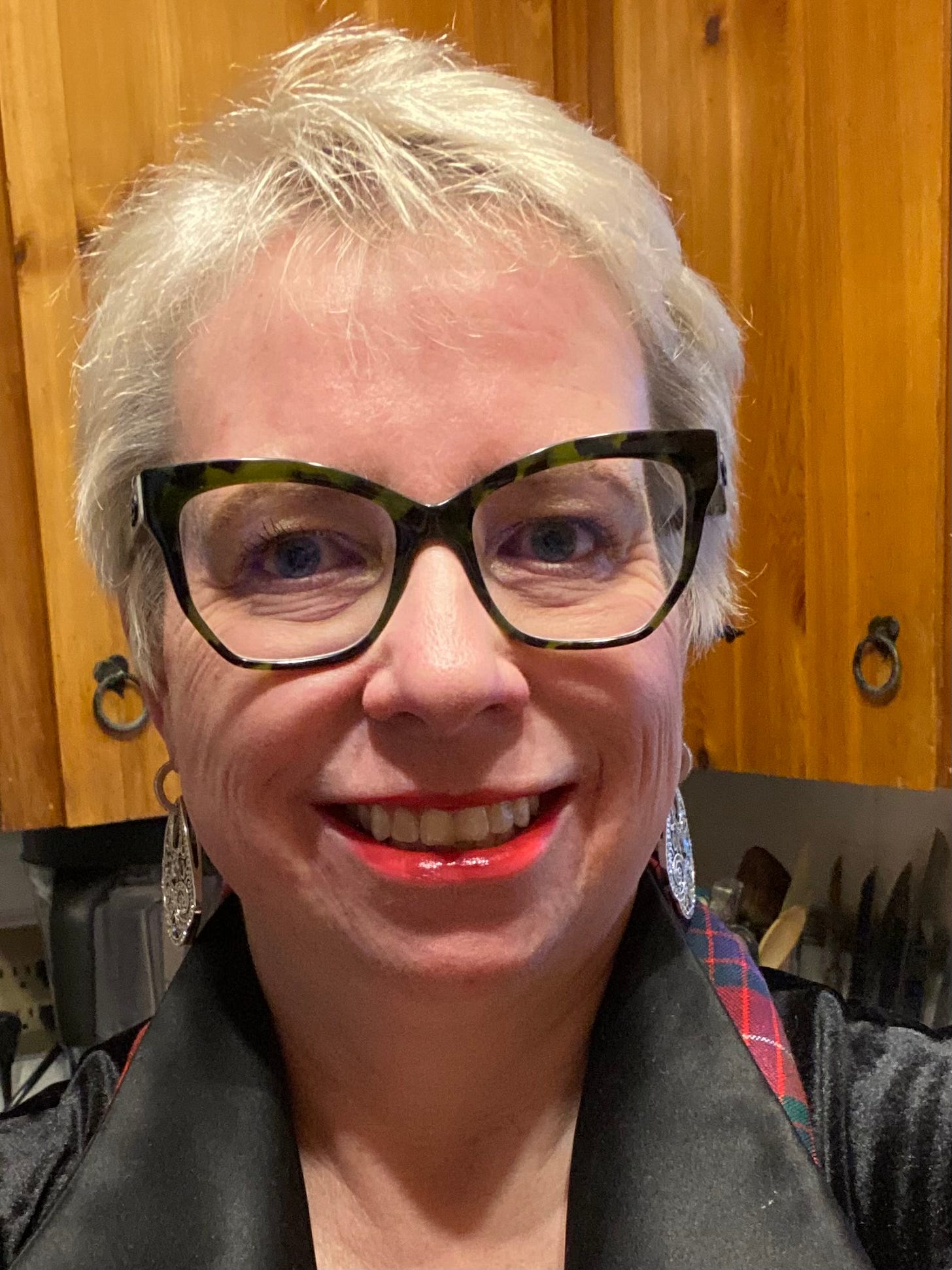
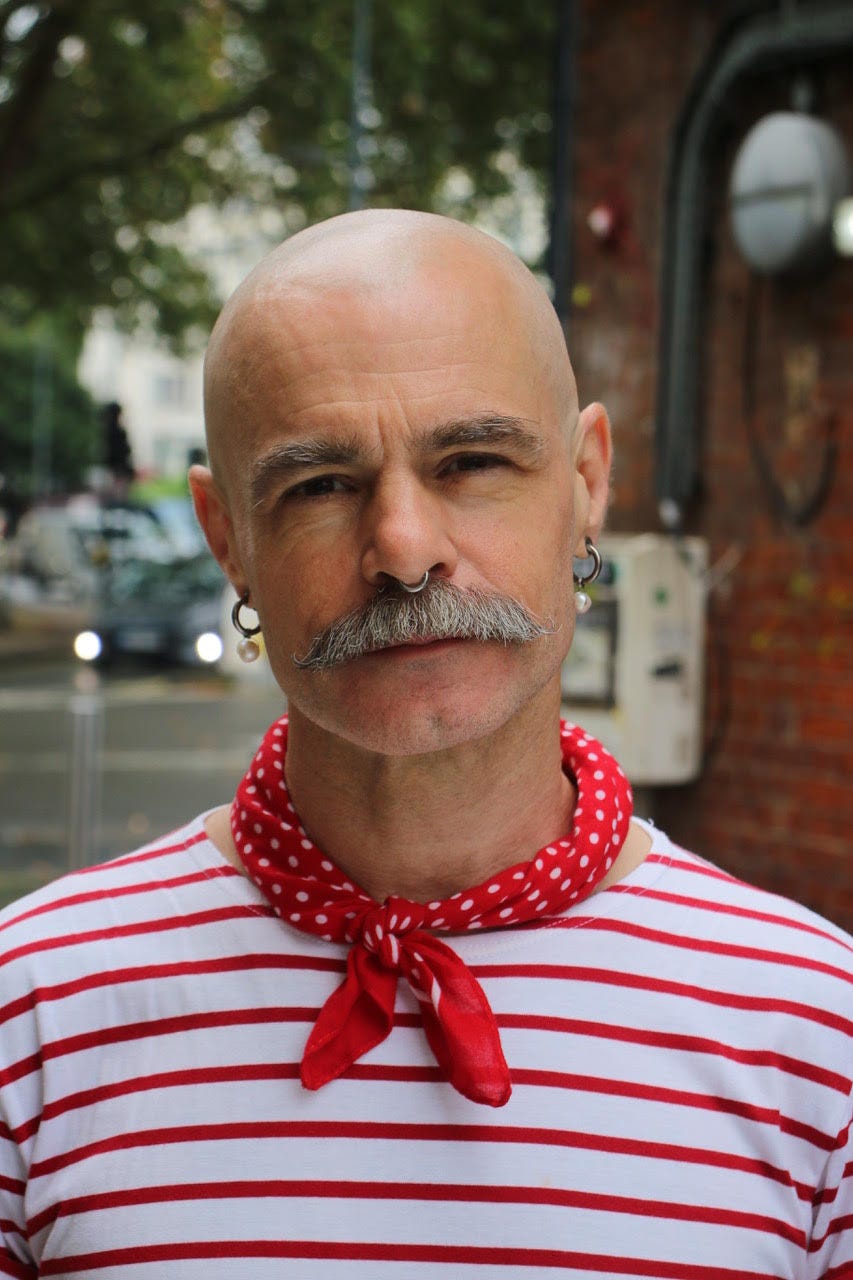
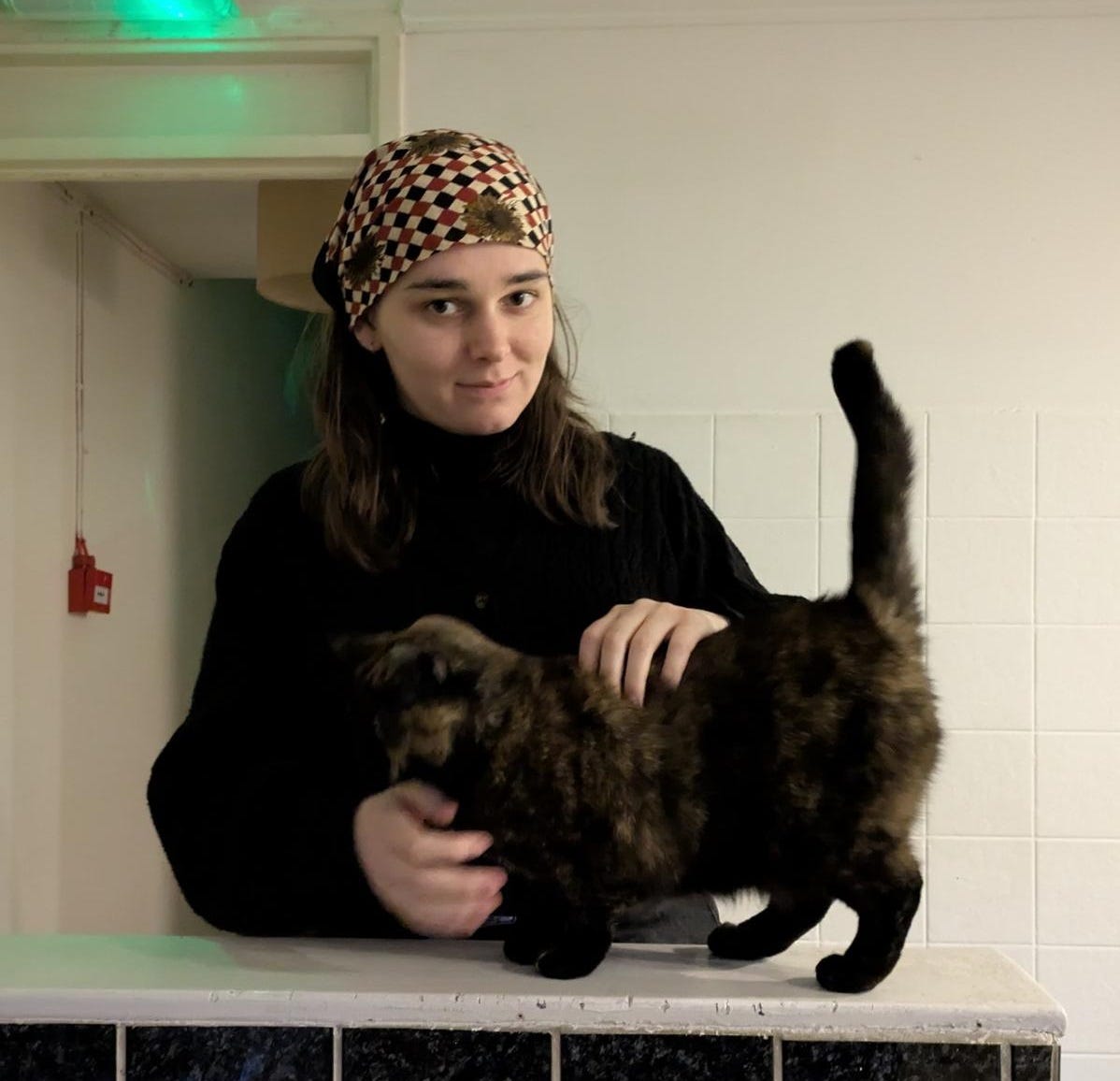
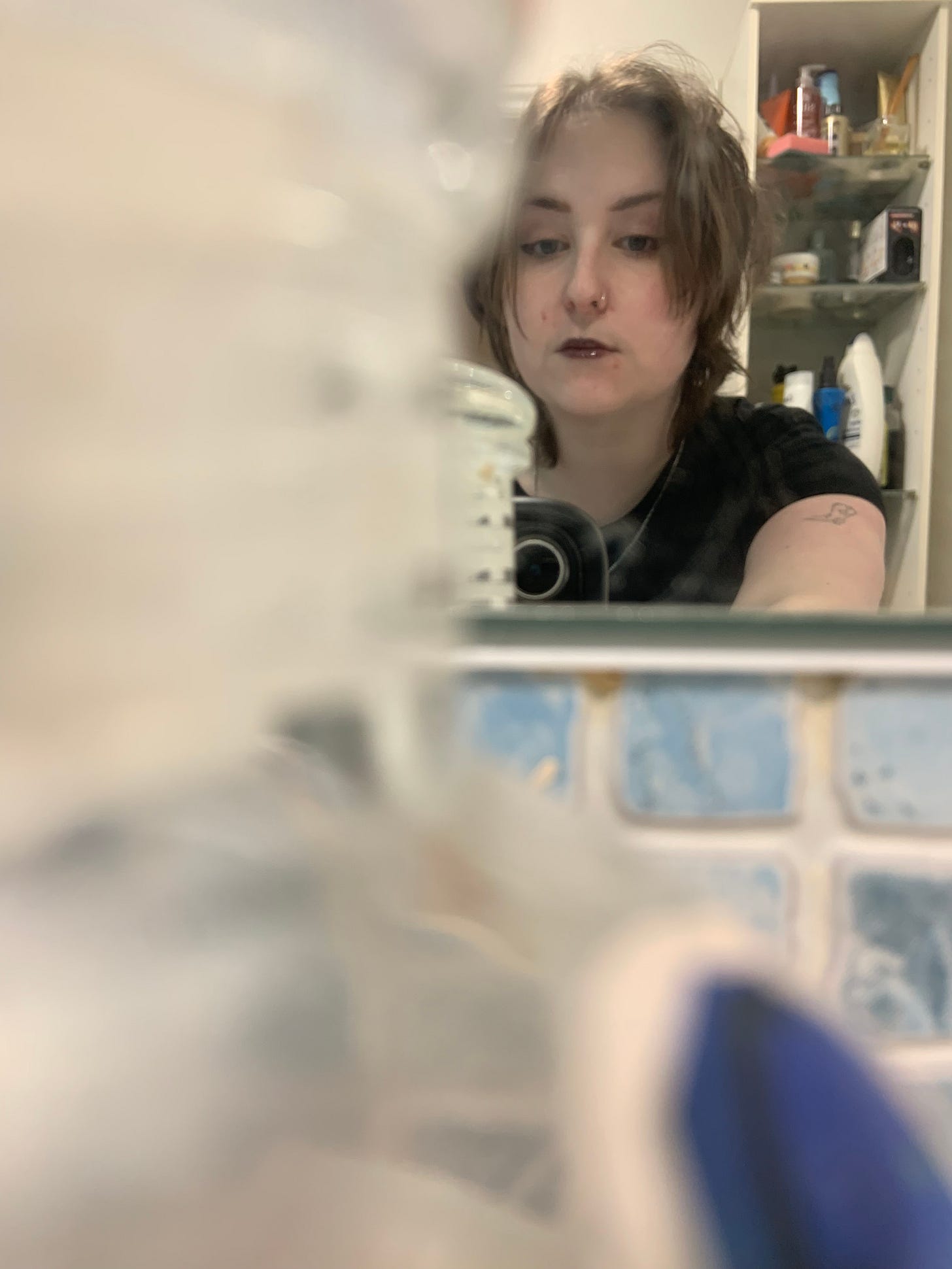
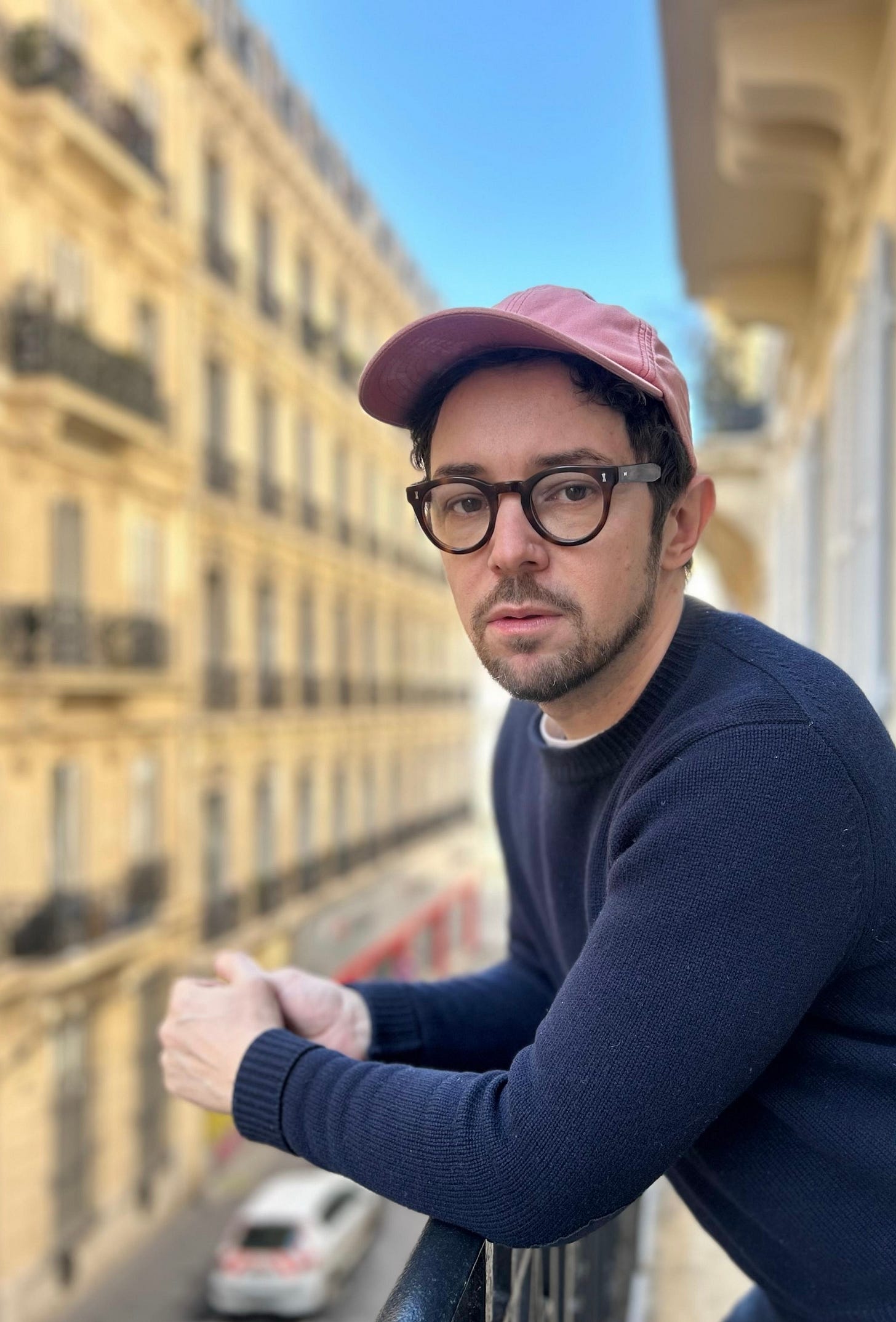
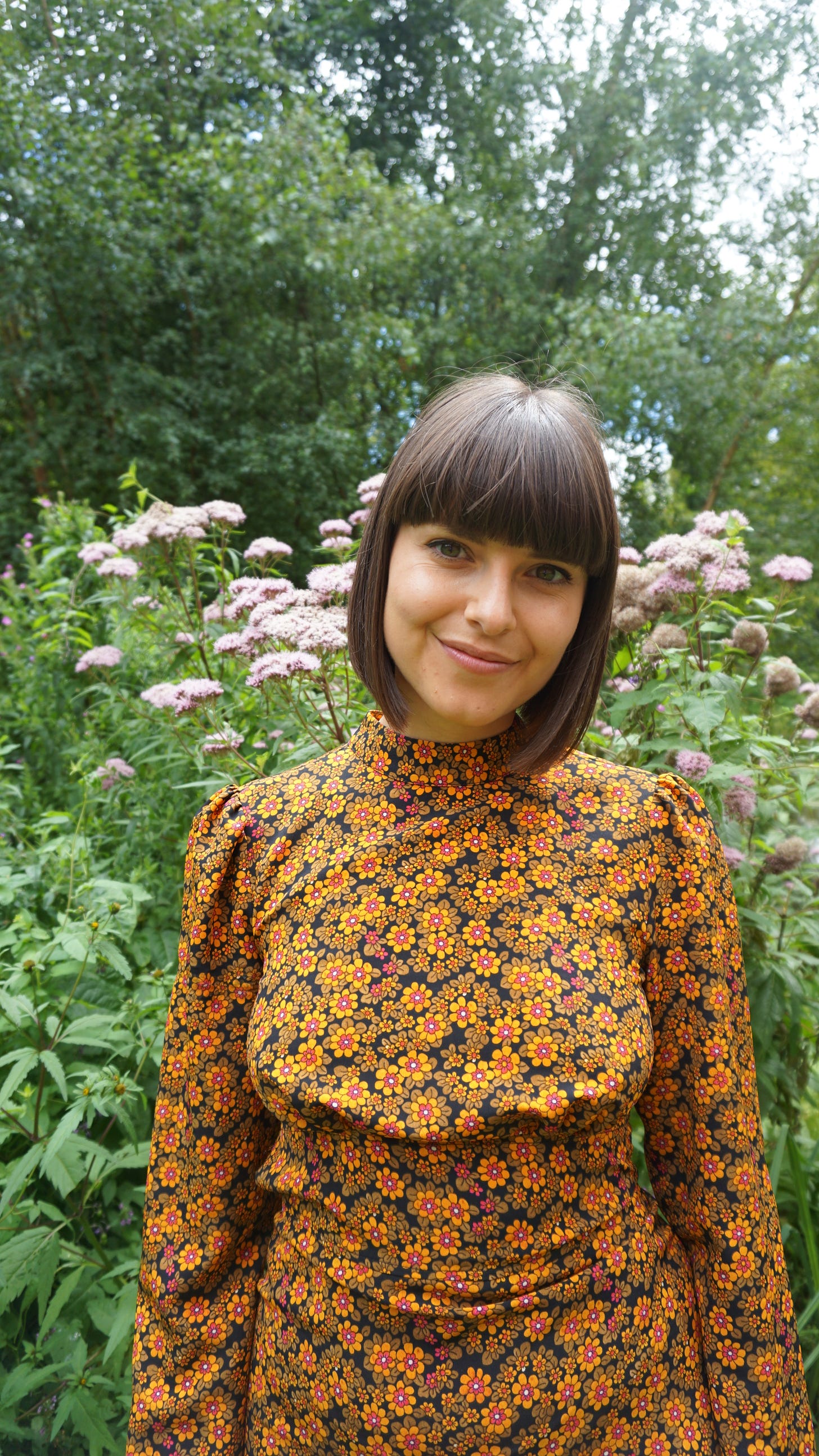
Congratulations all for a wonderful issue 👏